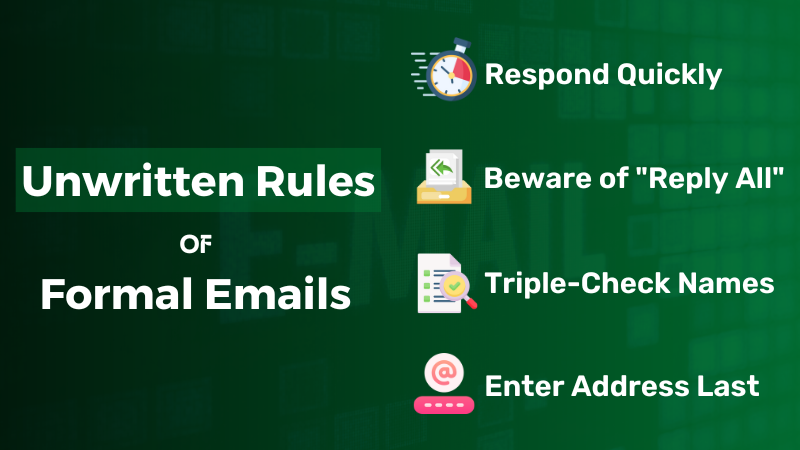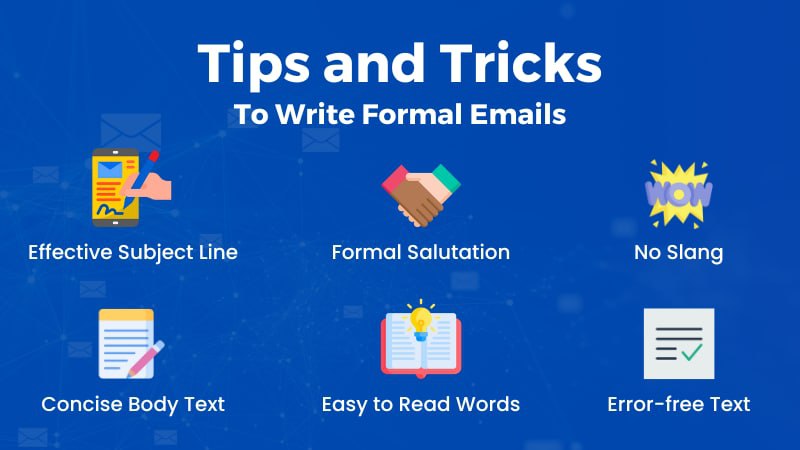Business Email Writing Best Practices

Business Emails are emails written for business purposes and sent to colleagues, partners or clients in and outside of workspaces. Rules and etiquettes vary across different types based on their formalities.
Types of Business Emails at Workplaces
There are two major types of business emails in terms of workplace communication and they are:
- Internal
- External
Writing these two types of business emails varies slightly in the measurement of formalities based on interpersonal relationships among the people in contact.
1. Internal Business Emails
Communication inside the workplace is often conducted via emails and they are internal business emails for its efficiency and quick delivery time compared to letters. Emails are often sent to the whole office to notify them of certain buildup, updates or changes.
Email as a Vital Tool for Internal Business Communication
2. External Business Emails
Emails that are sent out of offices and organizations for initiating effective business communication with partners, stakeholders and so on are external business emails.
These emails are mostly sent to people who are not regularly present in the workplace but are integral parts of the business such as business partners, clients, potential investors, shareholders, stakeholders and so on. External business emails are almost always more formal in language and tone than internal ones.
Write Effective Business Emails
There are many aspects to be careful about in business emails being sent out to recipients in and out of the office. Language, tone, pitch, and style often vary greatly from person to person depending on their designations and personal relationships.
It is better to follow a few rules and keep some tips in mind for ensuring the most effective email communications in and out of workplaces.
Here are 12 Tips and Tricks to Write Formal Business Emails to take note.
Rules of Writing Formal Emails
There are quite a few rules for writing formal emails which are strictly followed while writing business emails unless the informal language is a prerequisite just for safety. In business, the worst thing you can do is to offend people who you are in business with.
Formal salutations are the first thing to not mess up at the beginning “Dear Mr. Peteson” is always more formal than “Hello John” those are the subtle details to keep an eye out for.
There are more such rules to keep your language formal - Unwritten Rules of Writing Formal Business Emails
Business Email Etiquette
Etiquettes are the customary codes and polite behaviors maintained by society.
Business email etiquettes would be the generally accepted norms exercised in emails when businesses communicate via emails. A good example could be starting an email with a greeting and ending it with phrases like “Best Regards” or “Thank You” before signing off.
There are more such etiquettes that are taken to be traditional and the lack of it may seem rude. Most Important Business Email Etiquettes
Call-to-Action Phrases
There are formal phrases that one can use in situations where businesses are stressing a call to action in emails. But in most cases, a service provider sending email to its customers or subscribers may have call-to-action phrases aplenty in their email marketing communications.
These would be categorized under Informal External Business Emails.
Most Effective Phrases for Call to Action in Emails
Grammar
Read More
- How to Use "Therefore" in Sentences Avoiding Common Mistakes
- How to Use "Whereas" with Examples and Avoid Common Mistakes
- When and How to Use "Thus" Correctly Without Common Mistakes
- How to Use "On the Contrary" Properly with Meaning and Examples
- When and How to Use "Either/Or" with Examples and Common Mistakes to Avoid
- How to Use "On the Other Hand" Effectively without Mistakes
- How to Use "Respectively" with Example and Common Errors to Avoid
- How and When to Use "Moreover" Without Mistakes
- How to Use "Likewise" in Sentences Based on Context & When not to Use
- When & How to Use "Although" in Sentences to Avoid Mistake





